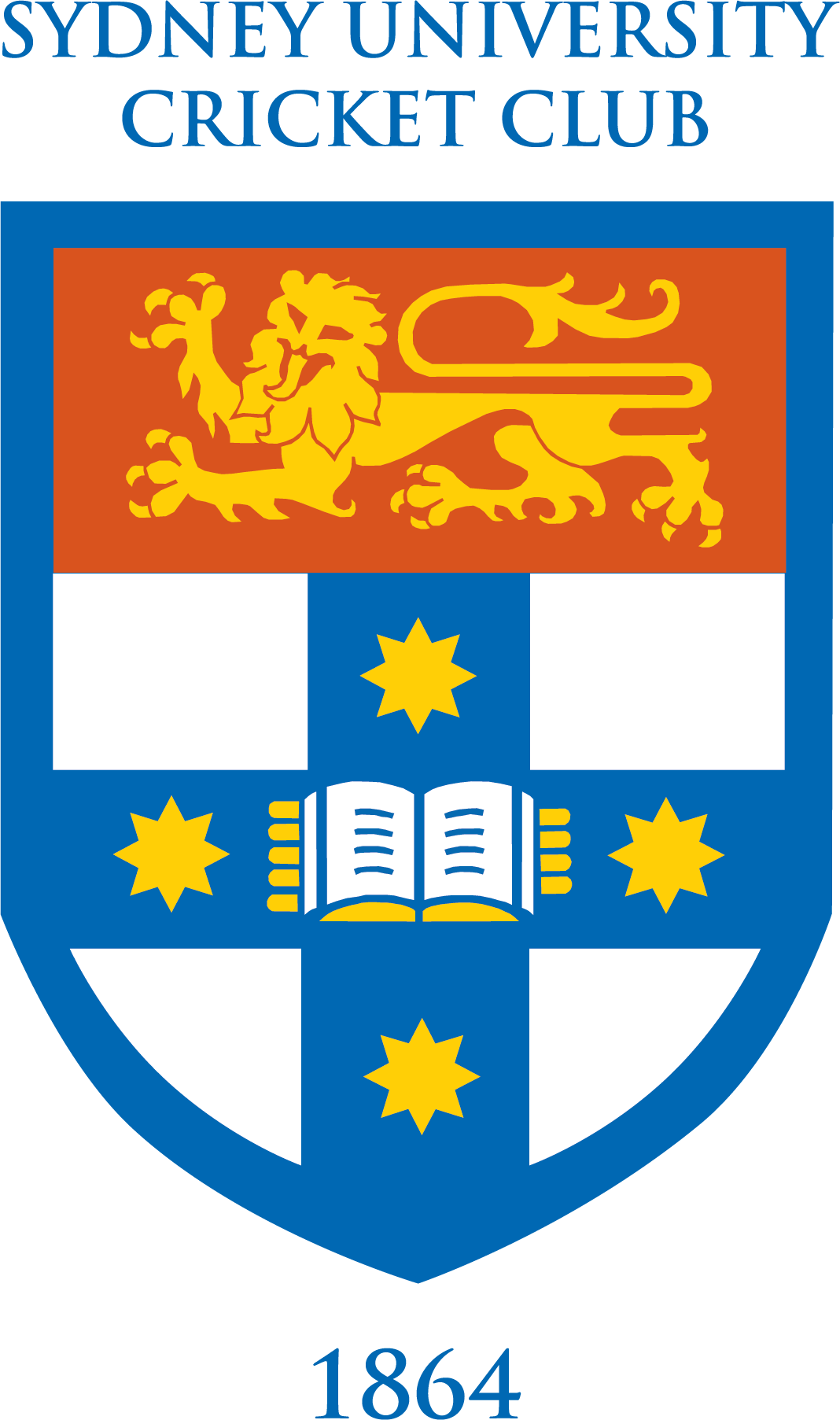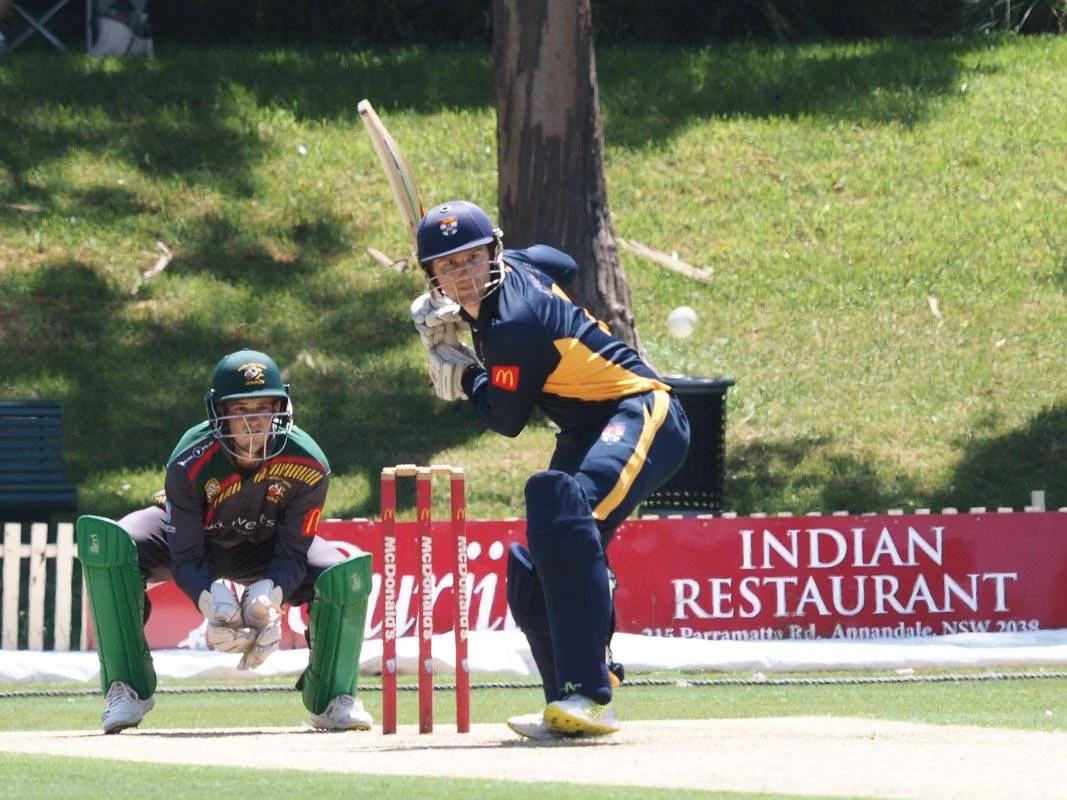By James Rodgers
THE PROLOGUE
Nick mows our lawns.
He also works as a grounds man on the Bankstown cricket ovals.
He had seen the Club’s match against Bankstown a few weeks ago.
He confides to me as I set out on Saturday that “those Uni cricketers are not only good players, they’re good blokes. They know how to play the game. They even went out of their way to talk with me.”
That unsolicited ringing compliment is still with me as I walk down Lawson St Redfern. A sultry January day crackles with anticipation. Mounted police clip-clop up Abercrombie St. Other police saunter on foot in pairs.
Today is Australia Day, a day of conflicting emotions for many of the 13,000 indigenous people who live in Redfern. Redfern, the birth place of urban Aboriginal civil rights movement in Australia in the 1960s and 70s.
On this day (‘first landing day’ as it used to be called), 231 years ago, eleven ships from Great Britain, carrying about 700 prisoners, entered Port Jackson and in the evening, Captain Phillip, watched by members of the Eora nation, raised the Union Jack and drank to King George III at a place he called Sydney Cove.
This morning, Luke Slattery writes:
“There remains no parallel in human history for the early Australian story of mass human transformation – or elevation – from such lowly beginnings…a story of universal moral value.”
The sandstone University, now also a mass of modern construction sites, seems a world away from Redfern although 370 indigenous undergraduates now study here.
THE LOGOS
The oval’s eccentric scoreboard, a jumble of numbers and half numbers, needs mathematical interpretation. With help from John Kilford, I can see that the batting side is 1-20 chasing 260. Campbelltown are batting; University are in the field.
The hands of ‘Victor’ the clock on the Grandstand are forever set at 12.20. It will tell the correct time twice a day but not now. It’s 2.15pm.
By 3.15, Campbelltown are starting to bat themselves into a strong position. Wells and Browne have put on almost 70 despite steady bowling on a flat wicket.
Robertson induces Wells to hit to mid on. A scrambled run. A direct throw from Malone to Robertson’s hands. Umpire Patel signals Wells out. A vital wicket. But what’s this? The skipper talks to the umpire. The appeal is withdrawn. The decision is reversed. Robertson has broken the stumps without the ball.
“They know how to play the game.”
This is no isolated incident. Earlier in the season, Robertson signals ‘no catch’ after the umpire had given an Easts’ batsman out.
In his hands, under his leadership, the ‘spirit of cricket’ is not some document at the bottom of a cricket bag.
It seems right when Robertson has Wells caught by Kershaw a few overs later.
Another story of universal moral value.
A wander around the ground.
Guarding the boundary is University cricket royalty. At long off is Ed Cowan. At deep cover is Nick Larkin who has scored 138 earlier in the day. Between them, they have 30 centuries for the Club in 1st Grade, nearly 14,000 1st Grade runs.
The quality of the cricket, the quality and integrity of the cricketers are causes for pride. Former Club President, Jim Mackie, who has died a few weeks ago, was a player of integrity says current Club President Bruce Collins who rests a hand on my shoulder and admits in a voice with a slight quaver, “This is what makes us so proud to have played here.”
THE EPILOGUE
Burke of Campbelltown who’s been playing 1st Grade for 18 years garners all his experience and all his fortune to survive 2 dropped catches and 2 opportunities for run outs until he is eventually run out for 40 from 40 balls by Mortimer throwing from the deep. Holloway takes a tumbling diving catch on the boundary near the scoreboard to send the six hitting Cormack back. The 3rd Graders, fresh from triumph at St Paul’s, send up a cheer and then another more lusty one as Robertson bowls the last batsmen when Campbelltown need 12. The strains of the victory song echo across the ground from the change rooms …”we are the Uni boys…” They’re also good blokes, good players in a Club that leads the Club Championship by a long way.
This was Australia Day.
231 years ago, the British first came here to stay.
165 years ago, University cricketers first played cricket and are continuing to play and to win and to instill pride in all of us.

